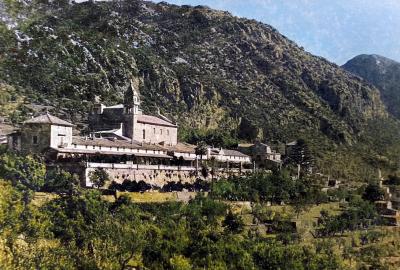How do the terraced fields and traditional agriculture in Mallorca’s interior reflect the island’s cultural heritage?
Similar Topics
terraced fields mallorca
traditional agriculture mallorca
mallorca cultural heritage
mediterranean farming techniques
soil erosion prevention
sustainable agriculture mallorca
mallorcan rural identity
traditional farming methods
The terraced fields and traditional agriculture found in Mallorca’s interior are a vivid testament to the island’s cultural heritage, embodying centuries of human adaptation to its rugged landscape. These terraced fields, often seen clinging to hillsides, illustrate an ingenious method developed by Mallorcan farmers to make the most of the limited arable land. By constructing stone walls to create flat, stepped plots, they managed to prevent soil erosion and conserve water, vital in a Mediterranean climate characterized by dry summers. This agricultural technique not only reflects practical knowledge but also speaks to a deeper connection between the islanders and their environment, highlighting a sustainable approach that has been passed down through generations.
Beyond their functional value, the terraced fields serve as an enduring symbol of Mallorca’s rural identity and traditional way of life. These fields have been used for growing a variety of crops such as olives, grapes, almonds, and cereals, all integral to local cuisine and economy. The maintenance of these terraces today preserves a landscape shaped by human hands, fostering a sense of continuity with the past. Traditional farming methods, often still practiced on small, family-run plots, reinforce community ties and preserve cultural rituals tied to the seasons and the land. Visitors wandering through Mallorca’s interior valleys and foothills can witness these sprawling terraces as living remnants of an agrarian lifestyle that continues to define the island’s character.
In essence, Mallorca’s terraced fields and traditional agriculture complement the natural beauty of the island with a cultural narrative rooted in resilience and harmony with nature. They provide not only a scenic landscape that captivates visitors but also an educational glimpse into the historical interplay between human ingenuity and geographic constraints. This agricultural heritage has shaped Mallorca’s cultural identity, making it a vital part of the island’s allure and an authentic experience for travelers seeking to understand its history and lifestyle.
Beyond their functional value, the terraced fields serve as an enduring symbol of Mallorca’s rural identity and traditional way of life. These fields have been used for growing a variety of crops such as olives, grapes, almonds, and cereals, all integral to local cuisine and economy. The maintenance of these terraces today preserves a landscape shaped by human hands, fostering a sense of continuity with the past. Traditional farming methods, often still practiced on small, family-run plots, reinforce community ties and preserve cultural rituals tied to the seasons and the land. Visitors wandering through Mallorca’s interior valleys and foothills can witness these sprawling terraces as living remnants of an agrarian lifestyle that continues to define the island’s character.
In essence, Mallorca’s terraced fields and traditional agriculture complement the natural beauty of the island with a cultural narrative rooted in resilience and harmony with nature. They provide not only a scenic landscape that captivates visitors but also an educational glimpse into the historical interplay between human ingenuity and geographic constraints. This agricultural heritage has shaped Mallorca’s cultural identity, making it a vital part of the island’s allure and an authentic experience for travelers seeking to understand its history and lifestyle.
🧩 Related Questions
Related Question
In what ways do certified guides in Mallorca contribute to a safer touring experience?
Related Question
How does the geography of Mallorca influence the types of wild foods available?
Related Question
What impact do Mallorca’s cultural festivals have on promoting tourism and the local economy?
